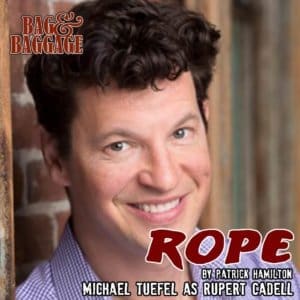- Skip to primary navigation
- Skip to secondary navigation
- Skip to main content
- Skip to primary sidebar
The External Locus Of Blame – Michael Tuefel Blogs on ROPE
 A discussion point from the only subject that was of any interest to me while reading my Juris Doctorate: Jurisprudece, or rather- the philosophy of the Law. In short, what makes a “law” a Law? Or in a practical sense, why is that we stop at stop signs, for example?
A discussion point from the only subject that was of any interest to me while reading my Juris Doctorate: Jurisprudece, or rather- the philosophy of the Law. In short, what makes a “law” a Law? Or in a practical sense, why is that we stop at stop signs, for example?
Is it because that we fear the potential consequences imposed by Society i.e. a traffic citation, or is it because we know that it is just the “right thing” to do? If we obey an innate Conscience, some guiding Force, let us say for the purposes of discussion what we might call God, then whose God is it? And furthermore, how do I know that my God is telling me what your God is telling you?
Is it Fear of Punishment or of God that forces us to do the ‘right’ thing?
Ultimately the Law looks to assign blame to whomever is responsible for the negative or injurious consequences of a particular action. Who is responsible for violating the traffic stop sign? Who is responsible should the violation cause an accident? Who is to Blame? Is it the driver we blame? What if it the driver, for whatever reason, decides that at the moment he violated the stop sign that his immediate need for a Super Big Gulp superseded his fear of getting a ticket or causing an accident?
Not too long ago we all recall the case of the “Affluenza Defense”: wherein the young man accused of murdering his parents claimed that the conditions of extraordinary wealth in which he was raised had deprived him of the ability to cognate the consequences of his actions. While being highly intelligent and for all intents and purposes “well adjusted”, the young mans’ defense was that as a result of being raised in a home devoid of boundaries, wherein the word “no” was never applied to him, he could not be held accountable to an outside world that imposed behavioral strictures that impeded his immediate desire, in this case his murdered parents’ life insurance money.
In Brandon we have an analogous case. In my experience, the kind of uber sheltered uber privileged life experienced by the British Elite is a perfect crucible for the External Locus of Blame. To put it bluntly, Brandon is bored. Idle hands really are the Devils’ work. Brandon is keenly aware that what he has done is objectively “wrong” in a moral sense. However, the connection between wrong-doing and consequences has been severed in Brandon, as he is convinced that he can escape said consequences by intellect alone. He states quite plainly that he has no conscience.
Who is it that is to blame for Brandon’s apparent lack of empathy and therefore text book sociopathy?
My personal experiences of people raised in the British model explored in Rope in every way informed my portrayal of Rupert. Many years ago I partnered with a British ex-pat in an event company in Prague, shortly after the Velvet Revolution. My friend was a member of a 1000 year old British family that celebrated Ascot Week and sent their children to be raised ‘elsewhere’ – at very expensive boarding schools, from the age of 6. In this environment, the children tend to ‘raise’ one another in the physical and emotional absence of a parent. Same-sex bonds are formed at an early age at these single-sex elite Institutions that create the foundations of every relationship entered into thereafter.
In this way, Rupert has parented Brandon. They are very distant cousins, brought up in the same social circles, educated at the same institutions. Rupert is slightly older than Brandon, having been old enough to go to War. Rupert has returned wounded spiritually and physically to complete his education and continue his pointless pursuit of a love affair with Brandon.
I myself attended a Boys College steeped in the British tradition in Brisbane Australia. Admission to the Brisbane Boys Grammar School was through being wait-listed from birth. My attendance was only barely realized due to my step-fathers’ family’s connection to the place: he had attended, my step-brothers had attended, as had their Grandfather. It was all very ‘British-esque’, with teaching staff getting around in academic robes in 115 degree weather. We were uniformed in suits and were openly inculcated to accept that we were quite simply ‘better’ than other boys our age. We were at a more expensive school with higher standards and better teachers than all but one other institution in the nation. Ergo, we were held to a higher standard yes, but on the assumption that our bare minimum was by definition superior to the masses. Meet Rupert, Brandon and Granillo.
Rupert’s undoing, his heart break, his unwinnable war is his love for Brandon and his repulsion at his Protégé’s actions. To what possible end has Brandon done this? Has Brandon’ learned nothing from Rupert’s harrowing accounts of the horrors of War? Does Brandon do this because he has seen nothing of death? Who is to blame?
An unanswerable question to be sure. Again, what makes a Law a ‘law’?
On playing Rupert:
In the spirit of full transparency, there is not much acting going on up there as far as Rupert is concerned. He takes full possession once I have the cane in hand and the cravat fluffed. Very occasionally a role comes along that is obviously written with just you the Actor in mind: such is my beloved Rupert Cadell. I hope that you enjoy an evening with him as much as I enjoy being him.
Love and light,
M
Michael Tuefel
Rupert Cadell in ROPE

Reader Interactions